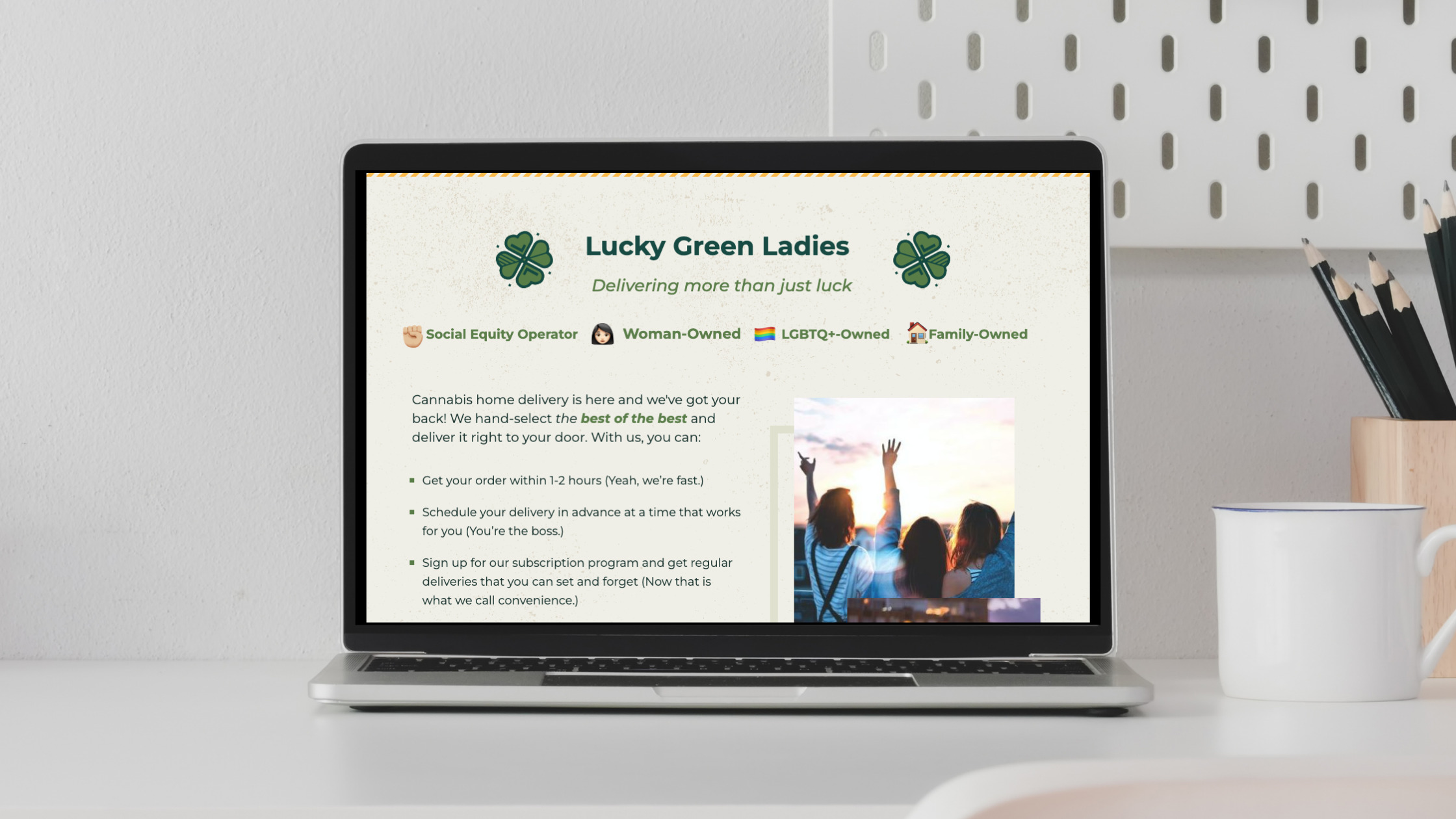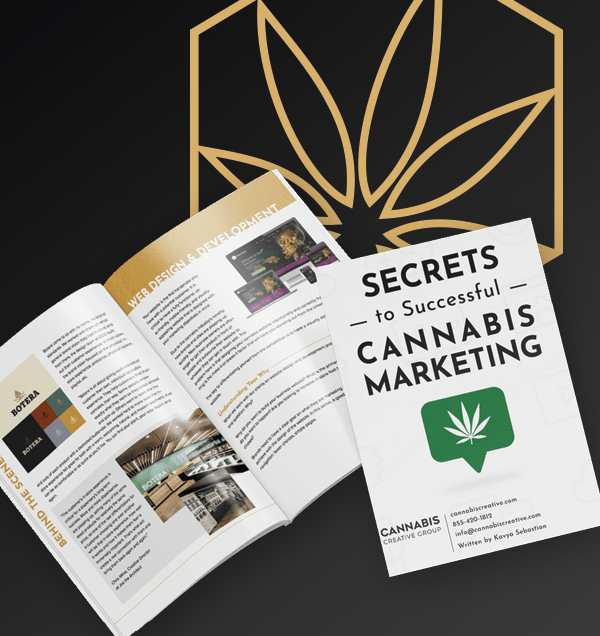When you think about a ‘double life,’ most people think of Spiderman or Anna Delvey: a secret, a lie, a mask. Rarely do we stop and think about the heaviness of hiding behind a false reality.
For a long time, both the LGBTQ+ community and the cannabis community shared history of marginalization – and of living in secret. They concealed their identities – and their recreational passions – and found themselves being forced into silence.
In the late 80s and 90s, these communities fought back with resilience during the HIV/AIDS epidemic. Their fortitude led to some of the most crucial steps in cannabis legalization history. Today, we can thank leaders, like Dennis Peron and Brownie Mary, and the communities that paved the way for our present-day professional cannabis industry.
However, the stigmas around being queer and around using cannabis are a stain that has proven hard to remove. And yet, with the work of people like Alissa Nowak, founder of Lucky Green Ladies, a recreational delivery operator here in Massachusetts, we’re seeing more hope in the industry.
We spoke with Alissa about creating an impact as an LGBTQ+ woman in the cannabis industry and transitioning from the legacy market to the legal one.

It starts with a breakup, as it so often does for a woman that’s about to stir things up.
Alissa Nowak was straight all her life. She went to Catholic school, was in a toxic relationship with a man, worked at Dunkin’, and in her spare time, she sold cannabis. Just like the rest of us, right?
Alissa bought a house with her then-boyfriend and two weeks later, decided to call it quits on the relationship. She was left with a backyard full of cannabis and a mortgage she couldn’t possibly afford on her own.
“When I ended that bad relationship, it was an awakening for me. I started selling weed to help pay the bills.” In fact, Alissa would drive nearly an hour to the city just to sell $50 worth of product.
She used cannabis hashtags on social media to find customers and marketed herself online before the cannabis industry was ever legalized. From underground trade shows and farmer’s markets to events like the Boston Freedom Rally, Alissa had built a strong customer base and an even stronger brand as a supplier.
“A lot of people in that world are, like, ‘You’ll get it when you get it’,” she said. “I put my customers first all the time.”
Alissa became very successful and eventually left her job at Dunkin’ to pursue selling cannabis full-time. With her customer-first and family-centric approach, she was a hit – something she took with her even after she got arrested.
From Legacy to Legal
In January 2019 – three years after cannabis was legalized in Massachusetts – Alissa sold to an undercover cop at a vendor party and was arrested.
Despite the incident, Alissa felt a sense of belonging in the cannabis industry. “The community was so open and accepting, so different from where I grew up.” In contrast to her conservative upbringing, the world had changed – and she felt she could too.
Cannabis had become more socially acceptable and with an entire professional industry surrounding it, Alissa decided to leave the legacy market to pursue the legal cannabis market with Lucky Green Ladies. At the same time, she began dating women.
When asked about how the transition affected her, she said, “It feels so great to be comfortable in my own skin now. I always lived a secret life. I couldn’t be honest about my job. I was never this open about speaking confidently about my experiences. I was insecure about my background, and now – it’s accepted.”
As a woman that was directly impacted by the War on Drugs and (luckily) found her way to the legal industry, Alissa was grateful and quick to give back. “I feel like a new person.”
Battling Inequity and the War on Drugs
Building a business is no easy feat. Building a cannabis business while navigating all sorts of ever-changing rules and regulations while also combatting the stigmas of the War on Drugs and the sexism of a white, male-dominated industry – well, that’s a whole different story.
“There are huge obstacles and still changes that need to be made.” In Alissa’s own experience, “People didn’t always respect me or take me seriously. I was young, I was a woman, and they talked down to me.”
And as with many other industries, investing in diversity and inclusion can look a little lopsided. “Budtenders are diverse and inclusive, but as you go up the ladder, that diversity decreases.”

Currently, Social Equity Programs are the closest to any real effort being made to mitigate the gaps in diversity and inclusion in cannabis. However, in the 13 states with social equity programs, the process is not only a dreadfully tedious and lengthy, upward battle, it’s an expensive one.
They leave entrepreneurs tangled in a mess of bureaucracy, resulting in a month-long waiting game for approvals while they pay for a laundry list of essentials, such as rent, marketing, and more.
Moreover, licenses are simply an invitation to take part in a highly competitive industry. Anecdotal evidence from these states shows that many approved equity applicants either never opened or quickly shut down.
While programs like the Disadvantaged Business Enterprise (DBE) Certification are wildly helpful to newly legal entrepreneurs like Alissa when applying for social equity licenses, the lack of capital is still a significant barrier to entry.
The only solution then becomes getting financial help from more wealthy, white counterparts who, ironically, ask for a stake in ownership. Needless to say, white-owned and minority-operated is not the goal of a program meant to address the inequities of the industry.
“So many old, white men talk about giving back to the community, but those who are financially stable should support young, social equity participants” – without asking for an ownership stake, might we add. “Donate to real participants, not just charities.”
Lucky Green Ladies & Pride
Although the legal cannabis industry itself may have flaws, the people are certainly more forgiving. “My legacy friends are part of the [LGBTQ+] community, including my mentor.” Being lesbian once used to be a point of conversation, “Now, it’s just a normal part of me. Everyone is so supportive.”
From economic empowerment to social equity for women-owned businesses, Black and Brown entrepreneurs, the LGBTQ+ community, and more, the cannabis industry has a certain fire to it when it comes to advocacy – as does the queer community.
Alissa promptly joined the Massachusetts LGBTQ Chamber of Commerce when she started Lucky Green Ladies and found that the queer community was willing to go above and beyond to help her establish her delivery operator business.
For other queer cannabis entrepreneurs in Massachusetts, Alissa says, “Join the Chamber of Commerce. Look to see who is registered as LGBTQ+ and reach out to them. It’s a pricey, long process, but it’s worth it. Lean on your fellow LGBTQ+ friends.”
Alissa’s mentor helped her significantly along the way – never asking for even a whisper of credit. So now, for Alissa, “I’m always willing to help because that’s how we’re going to make a difference.”

One of Lucky Green Ladies’ core missions is to create an impact in the cannabis community through mentorship. As part of their Positive Impact Plan, they will be offering educational classes and programs for prospective equity applicants. “I’m doing a mentorship every few months, but I would like to take on more! I can’t wait to hire more people to help me with that mission.”
We asked Alissa what her vision would be for Lucky Green Ladies if nothing was standing in her way, and her answer was nothing short of exceptional:
“I want to get my brand out there, sell branded products. I want to get to a point where I can help other people and increase my impact. I want to open up a store in New York, my hometown, and carry out the same mission there: connect with people, teach others, inspire.”
If you’re interested in reaching out to Alissa for mentorship or advice on your own journey, you can contact her at alissa@luckygreenladies.com. You can also follow Lucky Green Ladies on Instagram to keep up with their launch and Pride celebrations.
To read more from our Cannabis & Pride series, visit the Diversity & Inclusion section of our blog.
